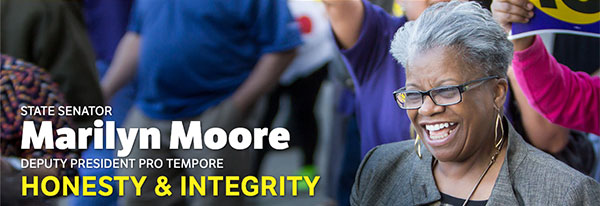|
Senator Gaston Releases Statement on New Traffic Stop Racial Disparities Study
Today, state Senator Heron Keyon Gaston (D-Bridgeport) issued a statement following a new preliminary report released by Connecticut’s Racial Profiling Prohibition Project on preliminary traffic stop data and findings for 2022. In this report, evidence concluded that between 2020 and 2022 progress has been made in Connecticut in traffic drop disparities, but racial disparities during traffic stops do still exist.
“Traffic stops are to hold motorists accountable for a roadway violation, not an excuse to present unfair prejudice toward drivers because of their skin color,” said Sen. Gaston. “I am thrilled to hear about the findings in this preliminary report of the progress that has been made in racial disparities during traffic stops in our state. As Connecticut heads toward a positive direction, I also recognize that disparities are still happening during traffic stops with Black and Brown drivers. I want to continue to work with legislators and law enforcement to eliminate unfair targeting of Black and Brown drivers and find a way to ensure every stop is guided by fairness. People who look like me should be given an equal opportunity while on the road.”
According to Ken Barone, the Project Manager with the Institute for Municipal and Regional Policy (IMRP) at University of Connecticut, who manages the Connecticut Racial Profiling Prohibition Project, the preliminary report suggests search disparities are trending down. Disparities in traffic stops do still exist, but ever since consent searches were banned in 2020, there has been a significant reduction in disparities when pulling over drivers for a traffic stop. As the state was evaluated as a whole, it was not found that there were significant disparities in which Black and Brown people were being stopped.
In 2022, a total of 313,346 traffic stops were analyzed by 107 law enforcement agencies during the 12-month period in Connecticut. Traffic enforcement increased by 14% in 2022 compared to 2021, however, it was a 39% decrease in traffic stops compared to 2019, the last year before the Covid-19 pandemic.
In the preliminary findings, three tests were taken: the Veil of Darkness Test, the Stop Disposition Test, and the KPT Hit-Rate test. The results of the Veil of Darkness test show that Connecticut police were not any more likely to stop Black or Hispanic motorists. The Stop Disposition Test did not reveal any discernible pattern in terms of how minority motorists are treated following a traffic stop. And the KPT Hit-Rate test show the lower hit rate for minority motorists suggestive of potential bias on the part of the police.
As traffic stop disparities are trending down, there still are some disparities that exist.
In the report, Black and Hispanic drivers were about 20% more likely to be stopped via a spot check compared to overall data. Black and Hispanic drivers were more likely to be stopped for reasons related to Administrative Offense, Display of Plates, and Window Tint.
The report also detailed length of stop and vehicle searches. Traffic stops can vary in length, and the duration of the stop is required to be reported by the officer. In the report, Asian and American Indian drivers have the highest chance of being stopped for 0 to 15 minutes, where as Black and Hispanic drivers are much more likely to be stopped for 15 to 30 minutes and over 30 minutes. Black drivers are 39% more likely to be stopped for over 30 minutes compared to overall data and Hispanic drivers are 68% more likely. Data shows that about 1 in 36 Black drivers and 1 in 31 Hispanic drivers experience vehicle searches.
During the 2023 legislative session, Senator Gaston lead State Senate passage of a bill that requires police officers to inform drivers of the reason for a traffic stop and encourage additional police officer trainings on de-escalation, use of force, customer service, diversity, and bias. This upcoming legislative session, Senator Gaston plans to introduce a bill requiring more educational training for police officers in Connecticut, building upon previous work he’s done to improve interactions between police officers and the public.
Research shows police officers stop Black drivers more often than White drivers. The Open Policing Project states on a typical day in the U.S., police officers conduct more than 50,000 traffic stops, with officers generally stopping Black drivers at a higher rate than white drivers. A study done in 2020 shows Black drivers were 20 percent more likely to be stopped than white drivers, and Black drivers were searched about 1.5 to 2 times as often as white drivers.
To see the report, you can click here. |




